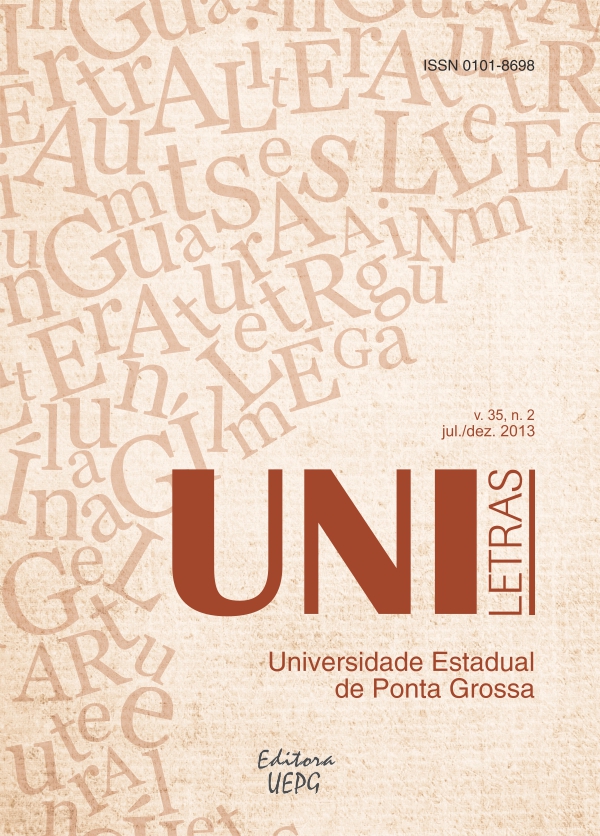O (ENTRE) LUGAR DA MULHER: EM CENA JEANNE D´ARPPO
DOI:
https://doi.org/10.5212/uniletras.v35i2.5194Abstract
A luta das mulheres para serem reconhecidas como agentes da História vem de longa data. Desde o nascimento, é atribuído à mulher o papel de esposa e mãe. No entanto, a partir da modernidade, surge um novo papel social, adquirido por sua inserção no mercado de trabalho. Isso vai acarretar mudanças na constituição da identidade feminina gerada a partir das novas práticas discursivas. Esse novo papel vai influenciar nas relações sociais, alterando a construção identitária feminina. O corpus do trabalho é a peça teatral Jeanne D’Arppo, escrita por Gardi Hutter em 1981. Jeanne D’Arppo é uma peça teatral cômica, a protagonista apresenta um comportamento característico dos clowns. Uma figura deformada, com aspecto físico desleixado e que traz certa ingenuidade nas ações. Mas, ao mesmo tempo, aproveita-se dessa suposta ingenuidade para criticar e falar indiretamente de questões sociais. Gardi Hutter propõe, por meio do riso, uma reflexão sobre os lugares sociais que a mulher ocupa e quais tarefas lhes são atribuídas. Nesse caso, mais especificamente, trata de um lugar que historicamente é considerado parte do universo feminino: a lavanderia. A pesquisa busca analisar a construção social da identidade da mulher e os agentes fragmentadores dessa nova identidade.
Downloads
Downloads
Published
Issue
Section
License
Authors that publish in the journal agree with the following terms:
a) The authors keep the copyright and grant to the journal the rights of the first publication, with the work simultaneously being licensed under the Creative Commons Attribution License that allows the sharing of the work with the recognition both of the authorship and the initial publication in this journal.
b) This journal provides immediate public access to all of its content, following the principle that making scientific knowledge freely available to the public provides greater worldwide democratization of knowledge. For more information about this approach, visit Public Knowledge Project, a Project that developed this system to improve the academic and public quality of research, distributing OJS as well as other softwares to support the publication system to public/open access to academic sources. Names and e-mail addresses in this website will be used exclusively for this journal purposes, not being available for other ends.

This work is licensed under a Creative Commons Attribution 4.0 International License.





